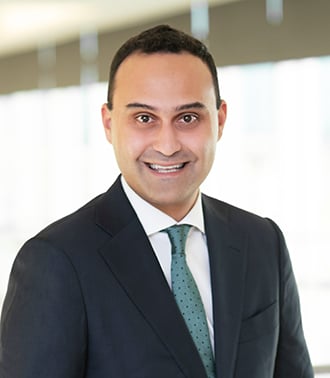DOJ Successfully Prosecutes Pras Michel for FARA Violations
Last Wednesday, April 26, 2023, following a highly publicized criminal trial in the U.S. District Court for the District of Columbia, Grammy award-winning musician and former Fugees member Prakazrel “Pras” Michel was convicted of ten counts, including conspiracy, witness tampering, concealment of material facts, making false entries in records, and serving as an unregistered foreign agent. The case is notable for its successful prosecution of a violation of the Foreign Agents Registration Act (FARA), again putting the once-obscure statute in the spotlight. Michel’s case follows several high-profile FARA prosecutions brought by the U.S. Department of Justice (DOJ) in recent years. DOJ’s increased enforcement of FARA reflects its commitment to policing foreign influence within the United States. In a statement following the verdict, Assistant Attorney General Kenneth A. Polite, Jr. affirmed that commitment, remarking that “anyone who engages in unlawful foreign-sponsored efforts to influence American officials, our elections, or the criminal justice system will be brought to justice.”
Michel’s convictions stemmed from his business relationship with Low Taek Jho, also known as Jho Low, a Malaysian financier who is wanted by law enforcement in the United States and Malaysia for his alleged role in the theft of US$4.5 billion from Malaysian sovereign wealth fund 1Malaysia Development Berhad (1MDB). Prosecutors alleged that Low and Michel conspired to donate millions of dollars to Barack Obama’s 2012 presidential campaign through a series of straw donors, in an attempt to conceal the foreign source of the donations. Regarding Michel’s FARA violations, prosecutors alleged that Michel served as an unregistered foreign agent by (1) lobbying the Trump Administration to drop DOJ’s investigation into Low’s alleged embezzlement from 1MDB and (2) lobbying the Trump Administration on behalf of Chinese government officials to extradite Chinese dissident Guo Wengui, who currently faces fraud charges in the United States.
Although Michel took the stand in his own defense and testified that he did not know it was illegal to lobby for foreign principals without registering with the U.S. government, the jury ultimately found that Michel willfully violated FARA’s registration requirement. The lobbying effort at the center of Michel’s case also resulted in a previous, similarly high-profile FARA prosecution: in 2020, former Republican National Committee official Elliot Broidy pleaded guilty to conspiracy to violate FARA for his role in lobbying government officials to extradite Wengui and to resolve the 1MDB investigation into Low. Broidy subsequently was pardoned by President Trump.
FARA, which was enacted in 1938, is primarily a disclosure statute, requiring any person or entity acting as a foreign agent within the United States to register with DOJ’s FARA Unit and make periodic public filings. Failure to register under the statute when required can result in civil or criminal penalties. Importantly, criminal liability under FARA requires willful violation of the statute, which has proved a high bar for DOJ to surpass in recent criminal enforcement actions. The majority of DOJ’s successful FARA prosecutions have resulted in guilty pleas rather than jury verdicts, which makes Michel’s conviction particularly notable. Criminal violations of FARA carry a maximum fine of up to $250,000 or up to five years’ imprisonment. Michel faces a maximum of 20 years’ imprisonment for his convictions on other charges.
Michel also was convicted under 18 U.S.C. § 951. As we recently discussed, Section 951 and FARA share the broad goal of limiting covert foreign influence in the United States, but they take different tacks to accomplish this goal. In contrast to FARA, which operates primarily as a civil administrative scheme and reserves criminal penalties for willful failure to register and willful false statements, Section 951 is a more traditional criminal statute that directly prohibits taking certain undisclosed actions on behalf of foreign governments. Section 951 prohibits a wide range of activities that help the foreign government principal, sometimes characterized as “espionage lite,” whether or not those activities are part of a broader public influence campaign. In Michel’s case, the Section 951 allegation was that he conducted his “back-channel lobbying campaign” as an agent of the Chinese government. Because Michel’s conduct was “political” and on behalf of a foreign government (rather than a non-government entity), DOJ charged — and secured convictions — under both FARA and Section 951. As these convictions show, while FARA and Section 951 do not necessarily overlap, the same conduct can lead to charges under both statutes.
DOJ’s prosecution of Michel showcases its commitment to enforcing the decades-old FARA statute, which originally was enacted to police foreign propaganda within the United States. For context, a 2016 report by DOJ’s Office of the Inspector General found that there were only seven criminal prosecutions under FARA between 1966 and 2015. More recently, however, DOJ has begun prioritizing FARA enforcement, focusing heavily on foreign influence from certain high-priority regions including China, Russia, and the Middle East. DOJ brought FARA charges in several cases to address Russia’s alleged interference in the 2016 presidential election. The recent FARA-related prosecutions of Elliot Broidy, Paul Manafort, and Rick Gates drew further attention to the statute. Michel’s prosecution suggests that there is no slowing down for DOJ’s recent enforcement push — and DOJ’s recently unveiled Section 951 prosecutions against several allegedly Russia-aligned individuals further confirm this trend.
Our FARA team provides proactive advice to clients on their registration obligations. We also represent clients in responding to requests for information from the FARA Unit, filing initial and supplemental registration forms, preparing for inspections by the FARA Unit and FBI, and navigating criminal investigations. For questions about FARA, please reach out to the authors or any of their colleagues in Arnold & Porter’s White Collar Defense & Investigations practice group.
© Arnold & Porter Kaye Scholer LLP 2023 All Rights Reserved. This blog post is intended to be a general summary of the law and does not constitute legal advice. You should consult with counsel to determine applicable legal requirements in a specific fact situation.



